Luthiery and Reinvention: The Interdependence of TunaTone Instruments
Leila Sidi, founder and luthier of TunaTone Instruments, builds meaningful relationships alongside her guitars—and disrupts the morals of capitalism in the process.
I became a luthier kind of by accident, through a series of events and relationships so strange and specific that they would be impossible to recreate for you here. And to be completely honest, I’m not a musician; until becoming a woodworker, I spent very little time thinking about guitars.
However, I have spent a lot of time thinking about and organizing around anti-capitalism and anti-colonialism.
When I started TunaTone Instruments in 2016, my friend Jenni Roberts, a Black queer professional musician who struggled with and problem solved around her own instruments for many years, taught me that guitar factories invested their resources in building high-quality guitars with only large, cis-men in mind. With Jenni’s wisdom, I set out to design and build inclusive instruments that centred folks left out of that factory vision: TunaTone guitars are lightweight and prioritize function and comfort for the player. Similarly, I wanted to think about other ways I engaged in my craft that centred practices reflective of some of my dreams for our collective future—in particular, how to live out anti-capitalist values under our current economic system by centering relationships, collaborations, and community.
Capitalism is a system that has a number of social effects, one of which is isolation. We’re often disconnected from the realities of how our belongings were made, and as a result we’re also disconnected from each other as consumers and manufacturers. It can make us forget the beauty and necessity of our interdependence. Years ago, when I was still trying to figure out how to maneuver TunaTone through the isolation of capitalism, the amazing Black trans activist and filmmaker Tourmaline came to my hometown of Edmonton, Canada, and showed me that resistance can look like disrupting the morals of the state or overarching social systems. And through collaboration, I’ve learned that interdependent relationships are critical to disrupting the morals of capitalism.
With every TunaTone build a relationship forms between me and the musician I’m working with, and the whole process and timeline represents a growth in this relationship. And in that, it also makes the object—in this case, a guitar—harder to replace because it holds more meaning than an instrument off the shelf possibly could. The process is far more personal.
I wanted to think about other ways I engaged in my craft that centred practices reflective of some of my dreams for our collective future—in particular, how to live out anti-capitalist values under our current economic system by centering relationships, collaborations, and community.

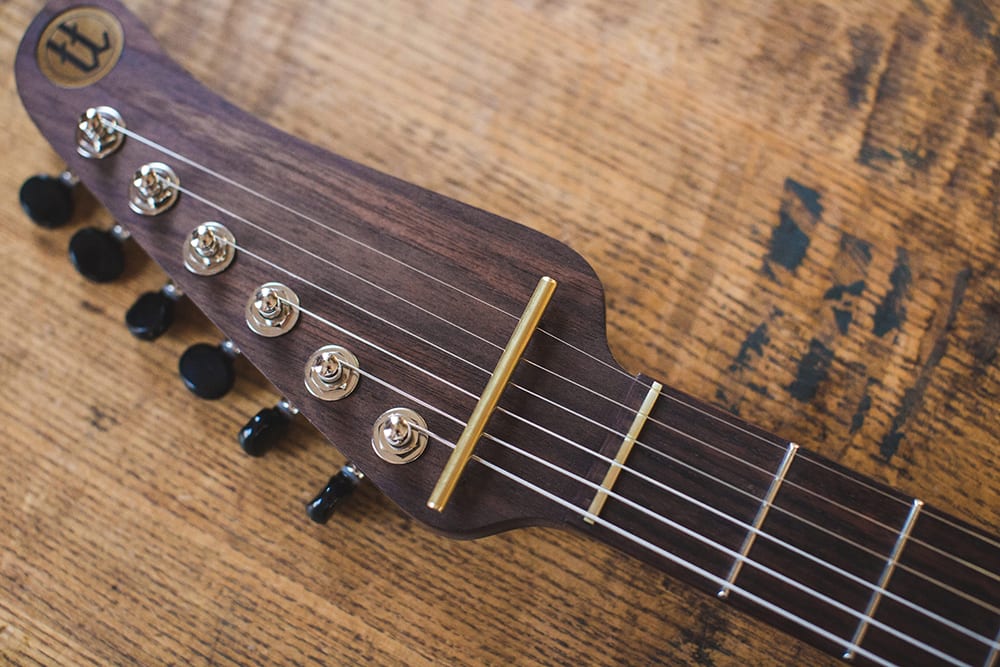

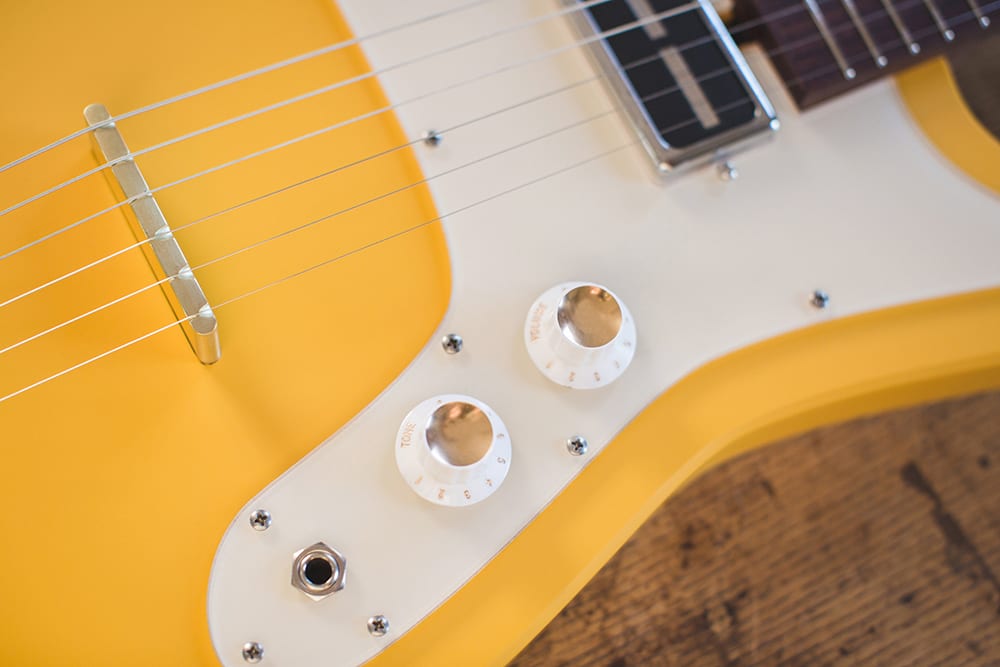

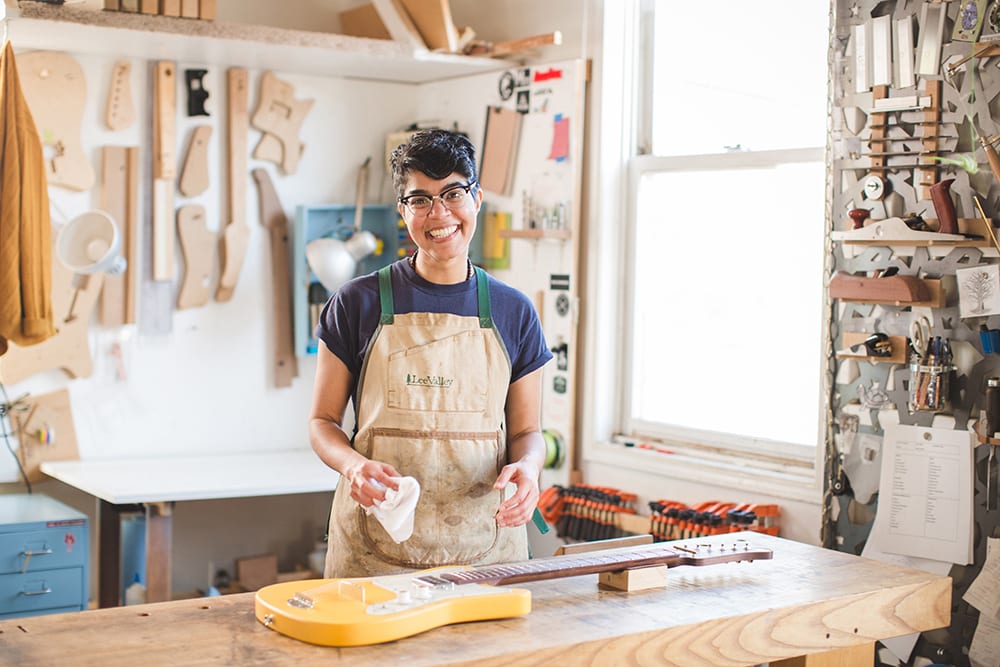

One such important relationship that was formed was with Fabi Reyna, founder of She Shreds Media. Even though every guitar I build is special, it felt extra significant to begin a collaboration with She Shreds because of how aligned our values are around community and accessibility in the guitar and gear world. She Shreds creates space for guitarists who have been underrepresented in the industry by redefining what it means to be a guitar player and centreing the communities who inspire their work.
When Fabi first contacted me about a custom guitar build, I had previously spent that day fighting setbacks in my small luthier shop in Edmonton. To get me through, I had listened to Fabi’s music project Reyna Tropical on repeat, and so I immediately responded to her message by thanking her for her music and how it helped during a really hard day at the shop. That’s the moment I started to feel a connection, like we might be friends or that there was a tangible alignment in our offerings.
There is a wide web of collaboration that goes into TunaTone guitars, including the people I work with on the manufacturing side as well as between myself and the musician. For example, when Fabi and I started chatting about the body colour of the guitar, she sent me photos of a beautiful handwoven suit. It was hard to find the right colour to match because the depth of fabric didn’t translate easily to a flat colour swatch. So I met up with my friend Aaron Parker, a musician and designer who helps me with the visuals of my instruments, at the hardware store, and together we picked paint swatches. Then Fabi and I went back and forth about how best to achieve the colour, and when we found the right match I called in a favour to Rob Bustos, head finisher at Vancouver Guitar Finishing, to spend even more attention to this colour mix. All of us had a mutual investment in getting the colour right; I wanted to get it right for Fabi, Aaron and Rob wanted to get it right for me. It’s collaborations like this that make my guitars feel rooted in community and care—the collective investment in their success is palpable.
Throughout the whole build, I sent Fabi updates: videos with me talking to her in the background, pictures of the process, setbacks. Our conversations were informal throughout the six-month build—over text or the occasional phone or video chat—and it was interesting to see how we connected on a more personal level alongside large and small changes in each other’s lives. And it was never just about the guitar: themes of astrology, place, capitalism, the future of the gear world, and the pandemic were woven throughout.
With every TunaTone build a relationship forms between me and the musician I’m working with, and the whole process and timeline represents a growth in this relationship. And in that, it also makes the object—in this case, a guitar—harder to replace because it holds more meaning than an instrument off the shelf possibly could. The process is far more personal.




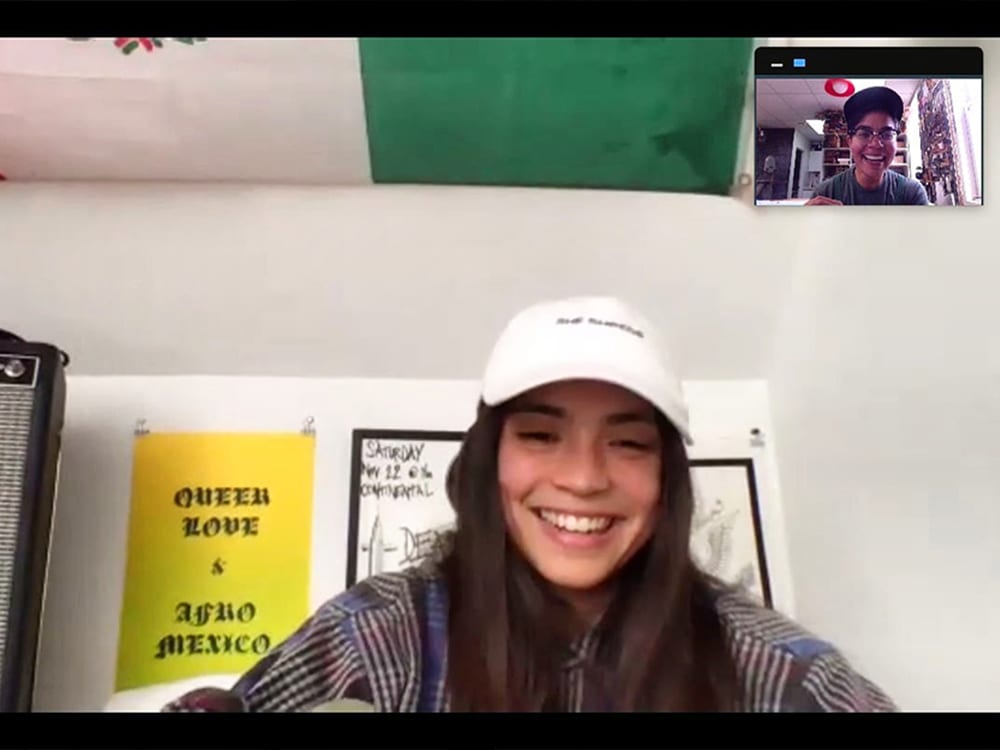

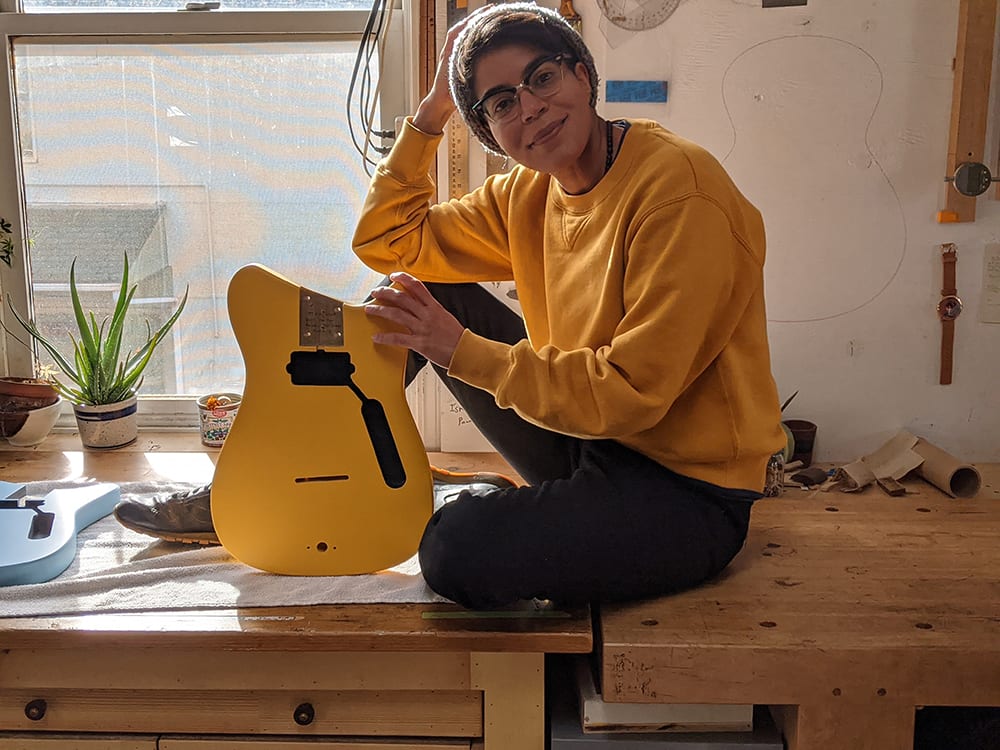

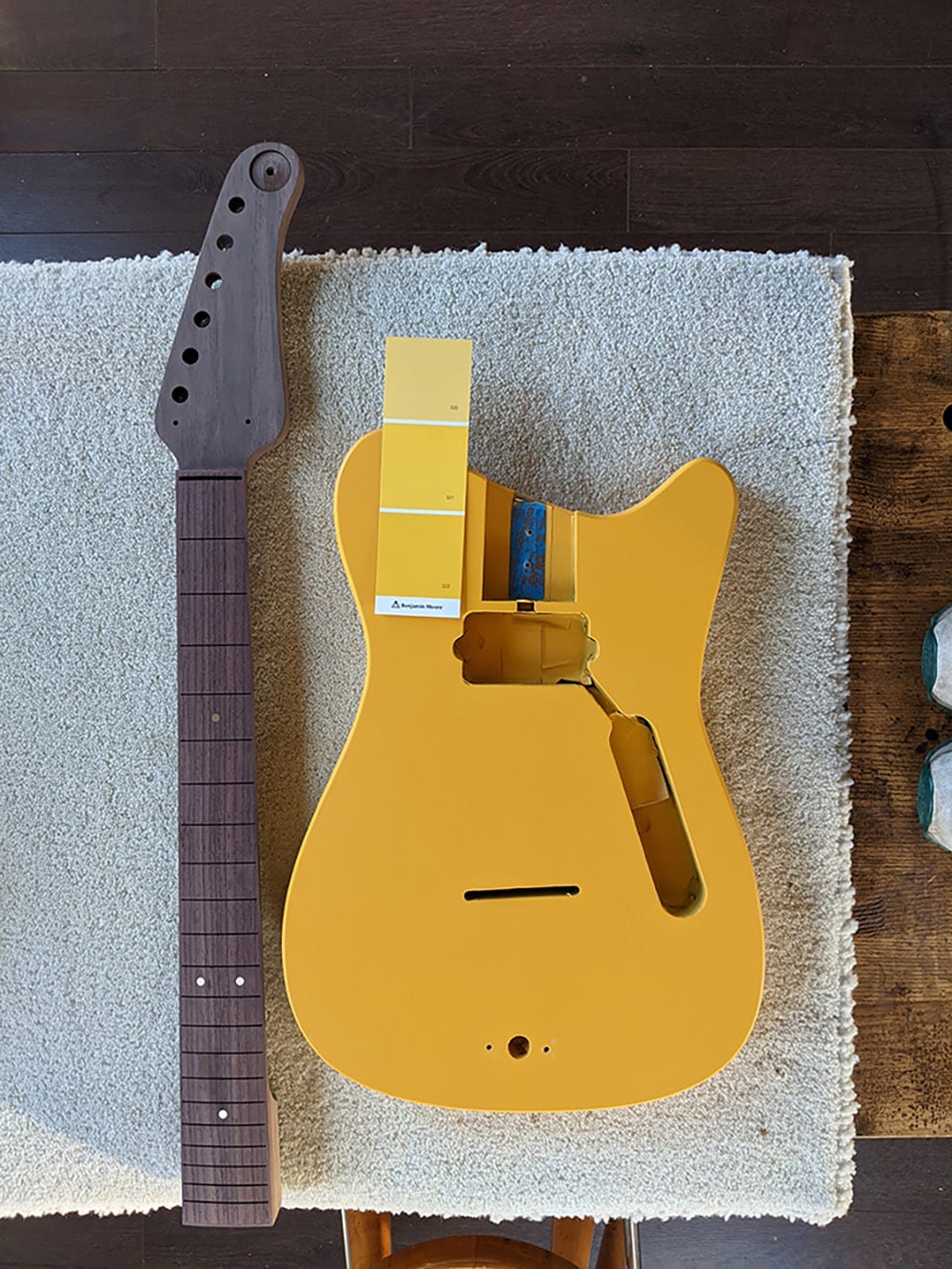

And of course, the pandemic did play a role in this build. I share my woodshop with two acoustic luthiers, Dion James (my luthier mentor) and Adam Turley, so at the start of the pandemic we had to stagger our time in the space. This was the first guitar I built without mentorship, so out of necessity, instead of relying on Dion to be my quality control, I learned to trust and rely upon the eye and feel for detail that I’ve been developing for years. This was a huge point of growth for me, marked by this She Shreds guitar, because it validated and affirmed my confidence. And I had to call myself to do and redo things a number of times in the process.
I’ve struggled with the concept of failure. The function that it has under capitalism, especially for BIPOC folks (in unconventional trades), is to question our sense of belonging. It has begged the question about whether or not I am “made” for this work, and it’s a painful question when committed to a craft. I used to equate setbacks with failure, but now I understand they are a necessary part of the process. The commitment to making them right is what produces a high-quality instrument, and a dedicated craftsperson.
The worst setback was when, six weeks into the project, I discovered a small measurement error in the neck-making process and had to start over. However, approaching this build with a collaborative spirit also meant I updated Fabi on the setback, and she was so patient. It reminded me that I wasn’t alone during the process, and also helped ease the pressure I put on myself to stick to tight timelines. It no doubt offered insight into the less glamorous parts of the build, but also a fuller version of this guitar’s story—which I hope also informs Fabi’s relationship to it.
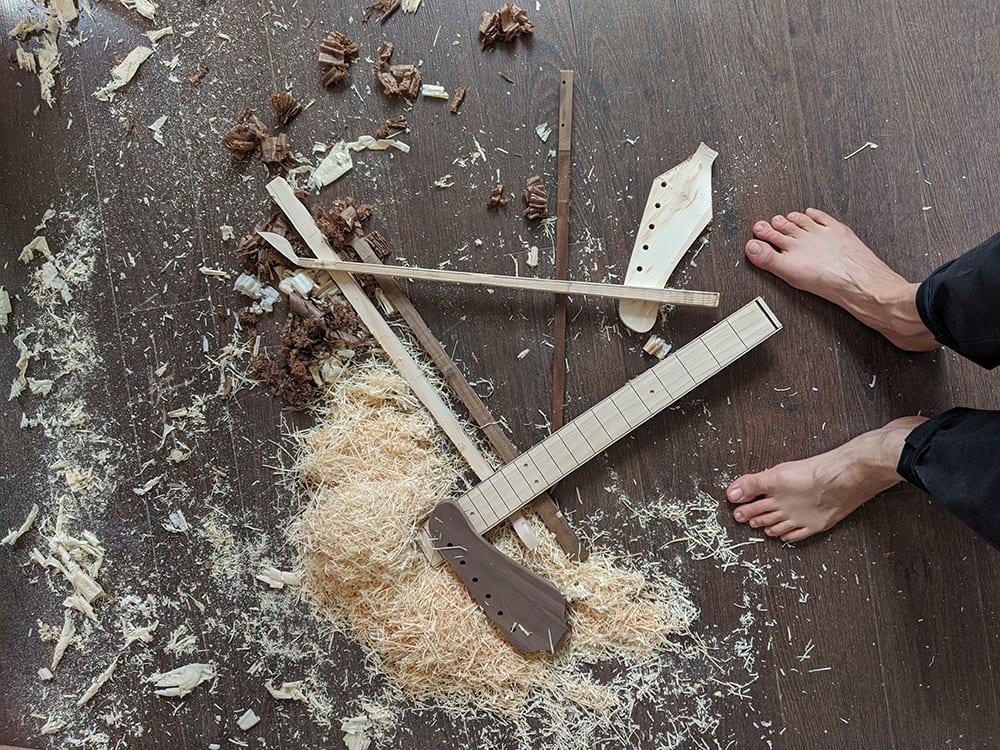

A lot of us have relationships with the objects we surround ourselves with, but we don’t often have a sense of the object’s previous story or a personal relationship with the person who made it—under capitalism, that’s intentional. Capitalism is based on a non-stop growth model that requires mass consumption, and we can only consume massively if the objects we’re buying are made cheaply enough to keep us replacing what we’ve got. And the way that’s done is through colonial practices of theft of land, resources, and people’s labour—colonialism is the backbone of capitalism. But in order to feel good about the object we’re buying, we basically have to emotionally divorce ourselves from the violence that went into its manufacturing.
My process and intention of building on a human scale—slowly, as transparently as possible, and forming genuine relationships between myself and musicians—are all antithetical to capitalism. Those reciprocal relationships are really special to me not only because I get to know who is buying my guitars, or them knowing why I choose the materials I do, or the design choices I make, but it’s also about a musician choosing me as their builder. Unlike other jobs I’ve held, my work as a manufacturer is inextricable from the person I am. And it’s very meaningful and affirming to know that people are investing as much in a sick guitar as they are in me.
As I was facing major setbacks in this build, I was able to ground my work in ideals of interdependence, knowing that I was not alone in my process, and in principles of abolition, by recognizing that sometimes the best decision is to overhaul the entire thing and start again for a better result.




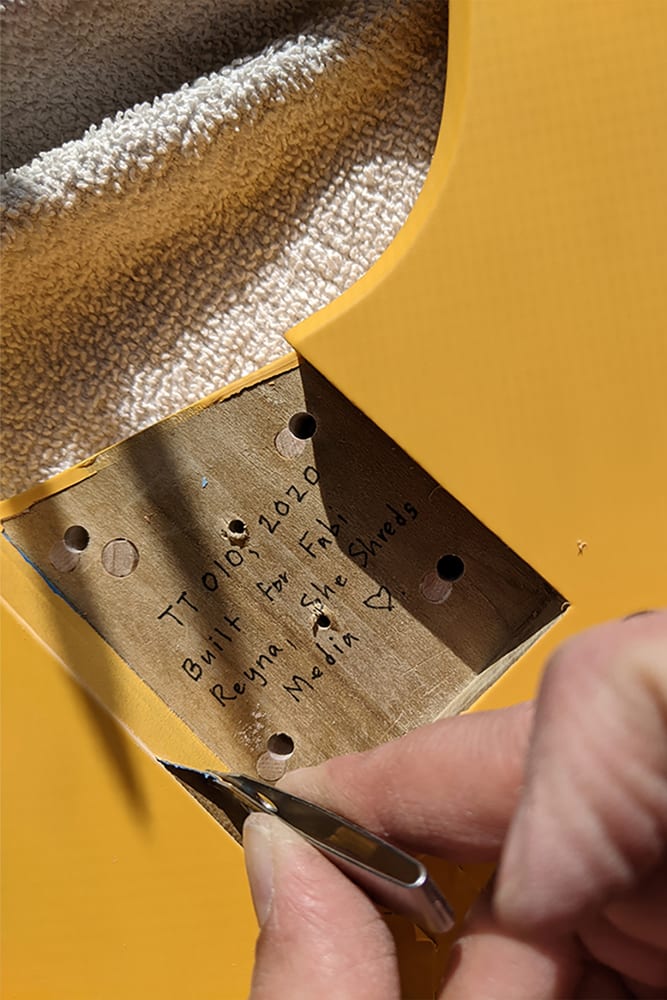

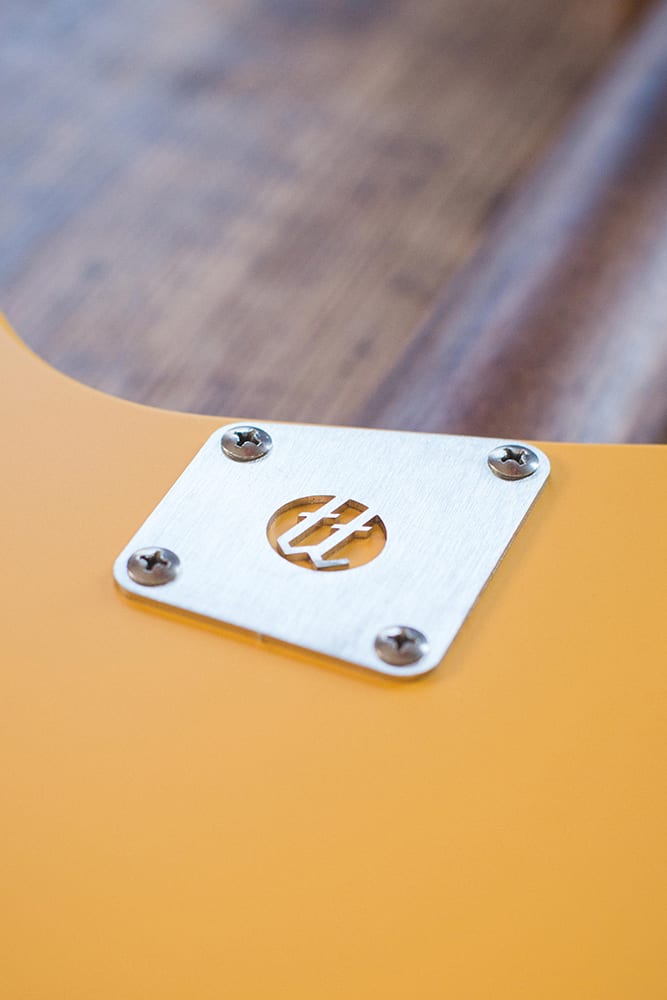



I built the She Shreds guitar through the pandemic, which was also a strong and historic iteration of the Black Lives Matter movement. At the same time that people were facing isolation and disconnection, they were coming together through direct action, mutual aid, and calls for abolition and defunding the police. The mass actions and campaigns were inspiringly possible because of years of collaboration and community organizing by Black activists. At the same time, as I was facing major setbacks in this build, I was able to ground my work in ideals of interdependence, knowing that I was not alone in my process, and in principles of abolition, by recognizing that sometimes the best decision is to overhaul the entire thing and start again for a better result.
Truly, the privilege I have in collaborating with people such as Jenni, Aaron, Rob, and Dion has allowed me to flourish and be the builder I am today. As I do this work, I always want to think about my role in anti-capitalism and anti-colonialism, because I deeply believe we all have a role in the revolution that’s as much about what we do as the way we do it.


You May Also Like
No related posts
No related posts
More posts
-
By: She Shreds
-
By: Leila Sidi
-
By: Kinseli Baricuatro
-
By: Kinseli Baricuatro
-
By: Charlotte Friesen
-
Powered By: Reverb
-
By: Glenn Van Dyke
-
By: Jess Garland
-
By: Jess Garland
-
By: Glenn Van Dyke
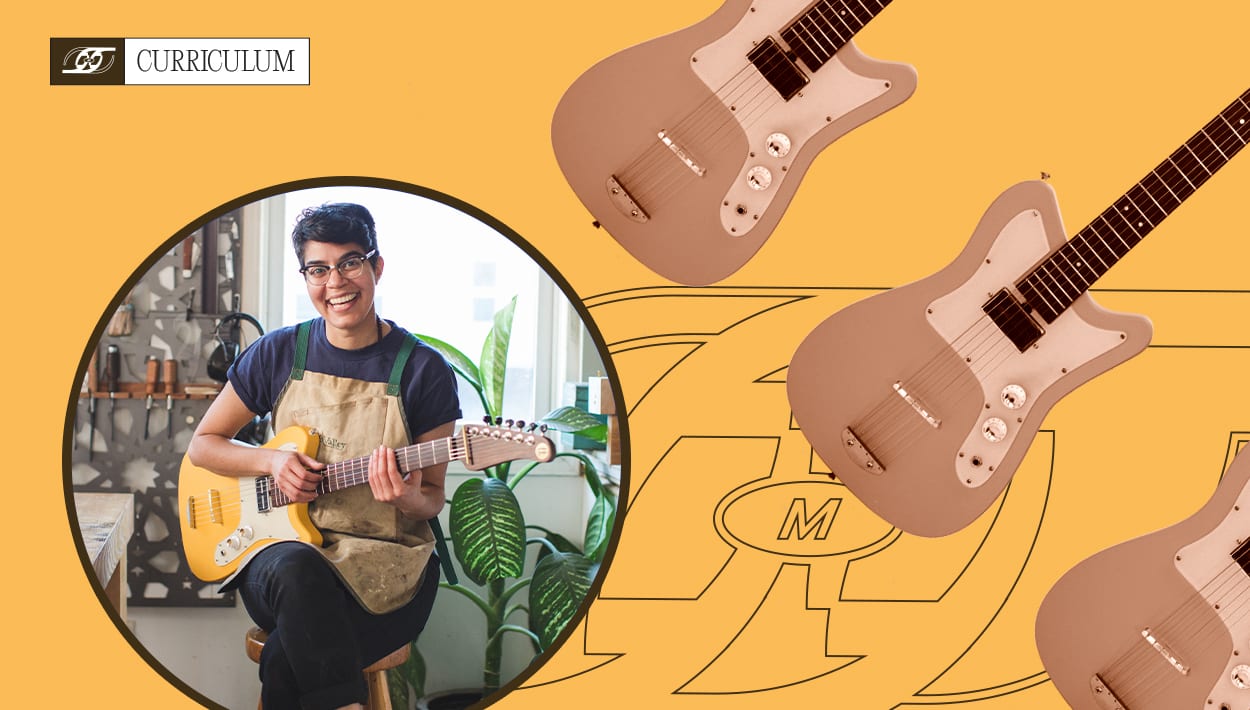
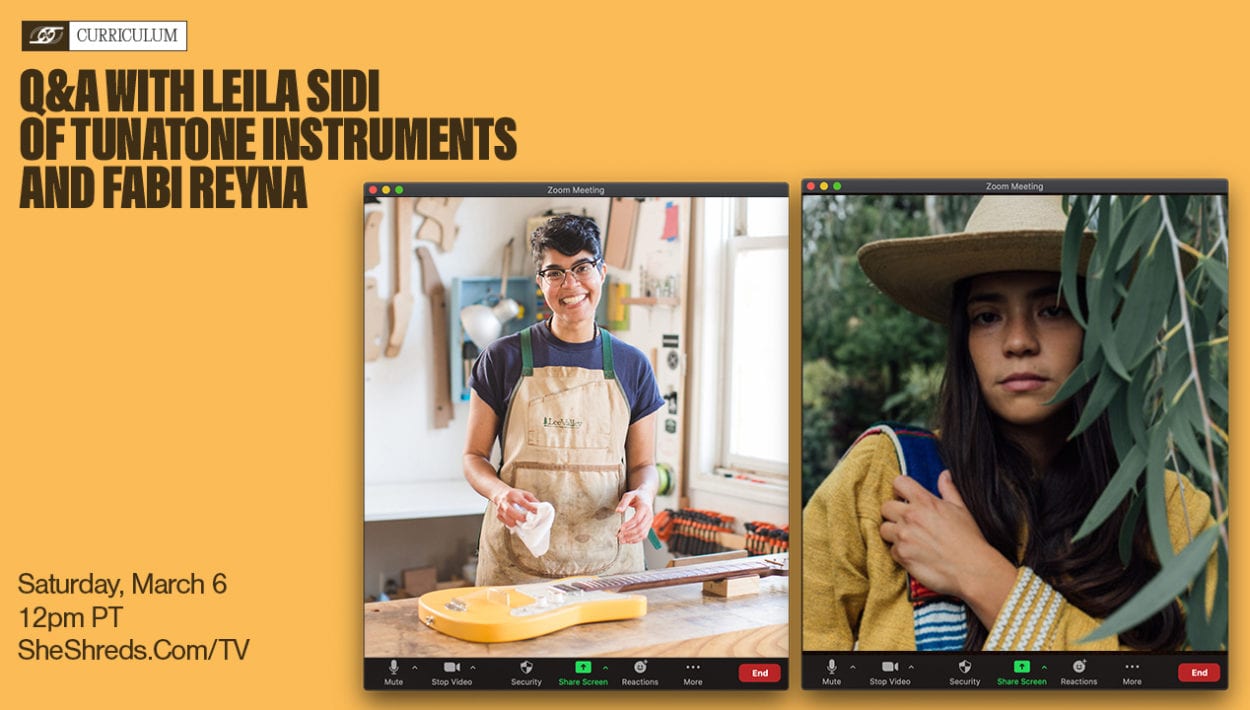
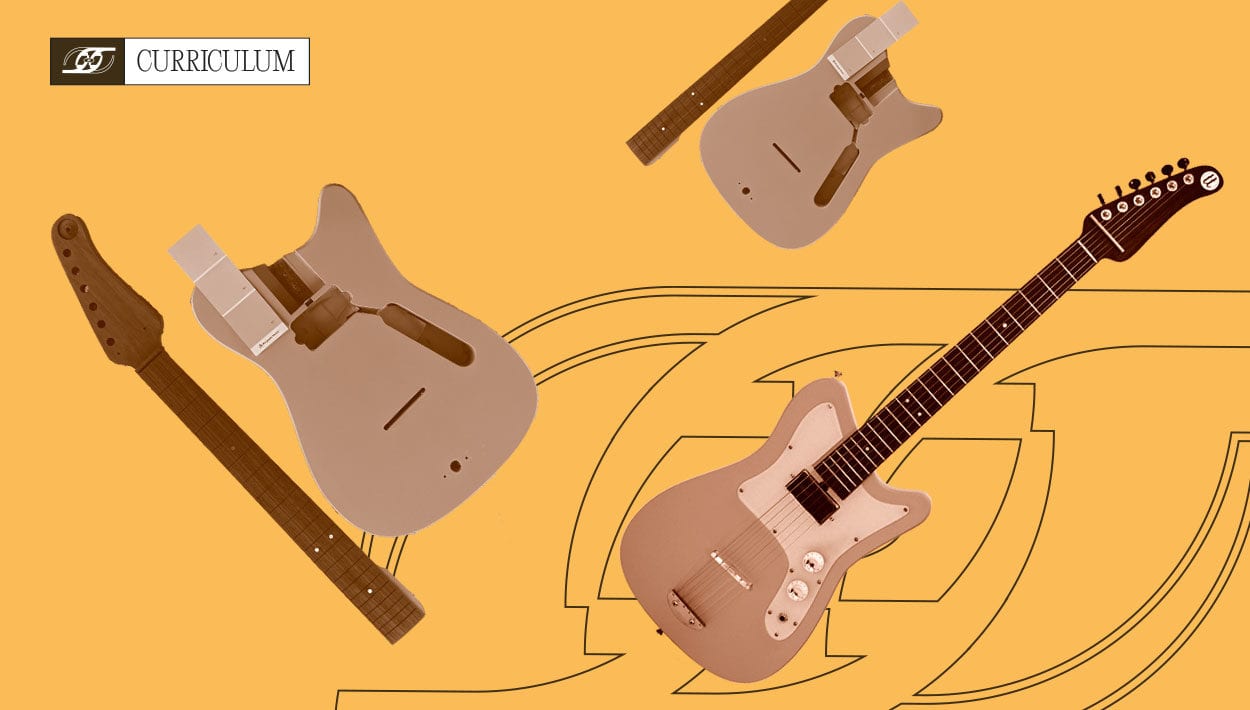
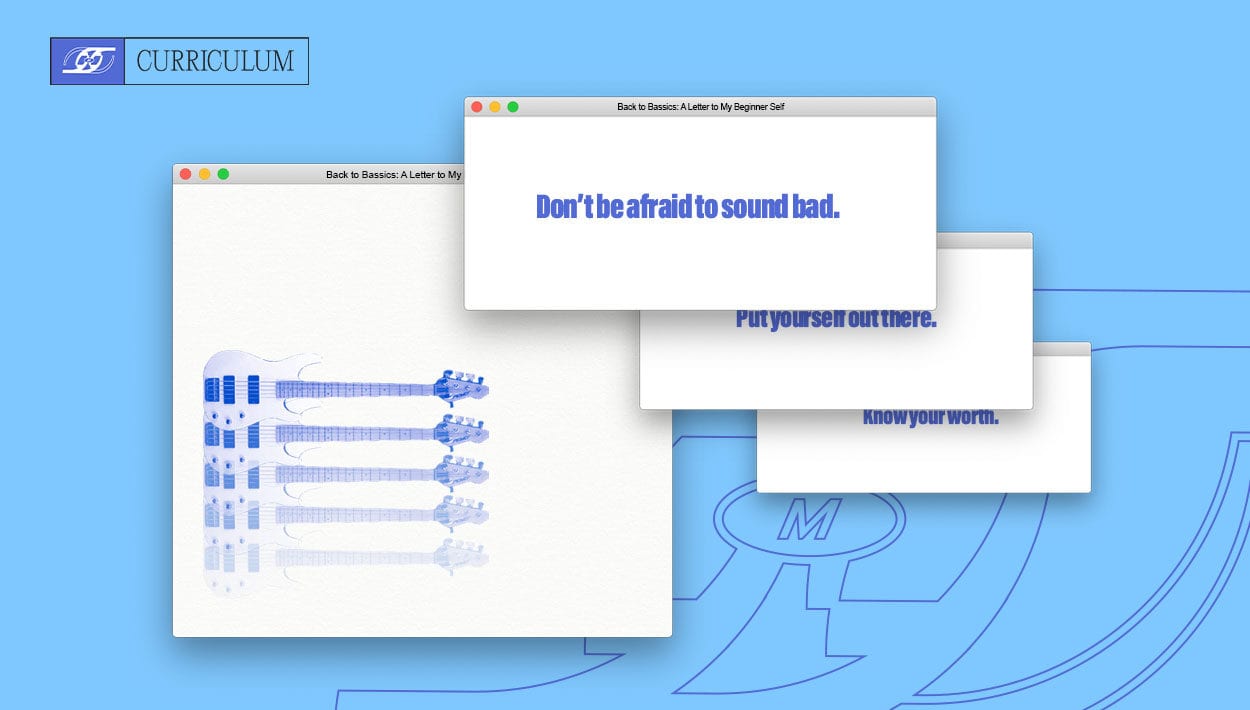
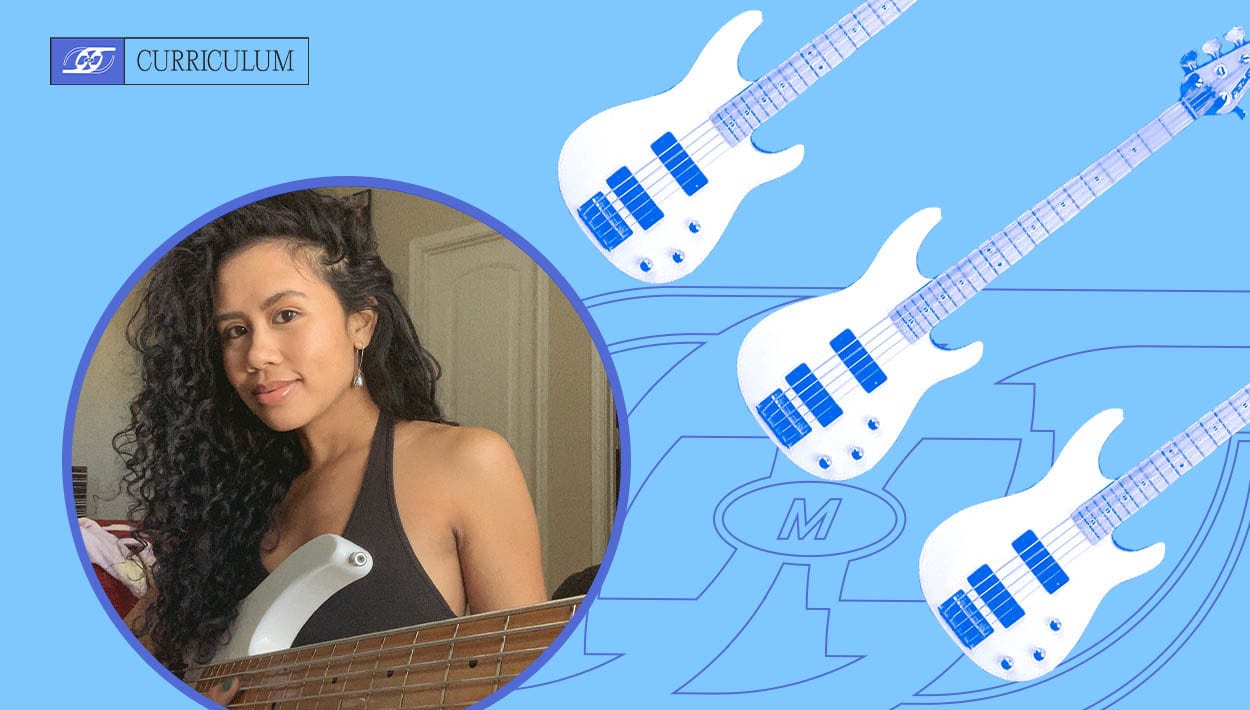
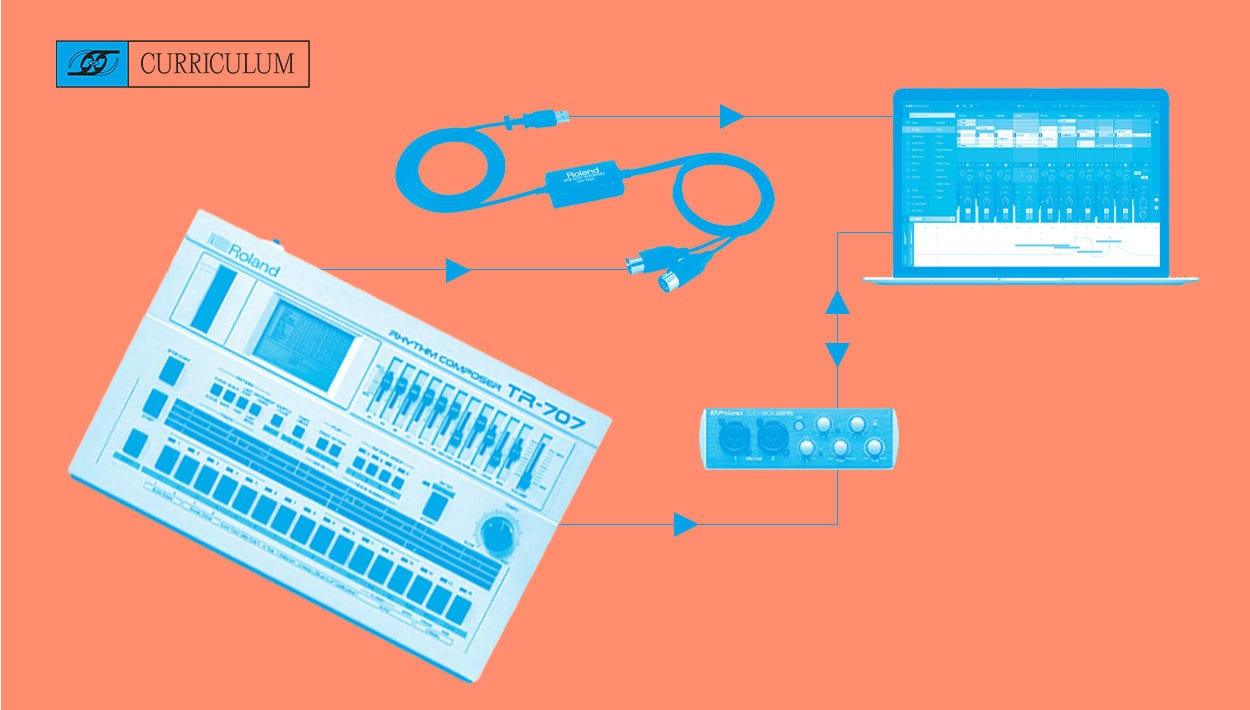
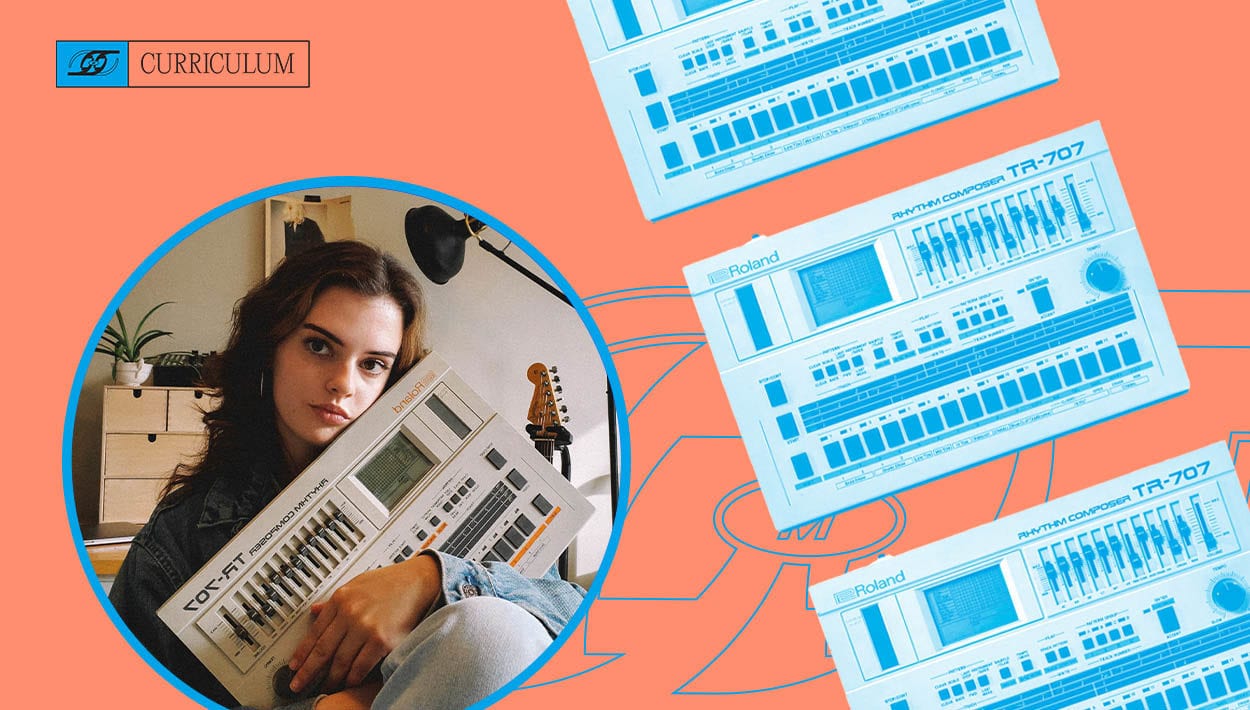
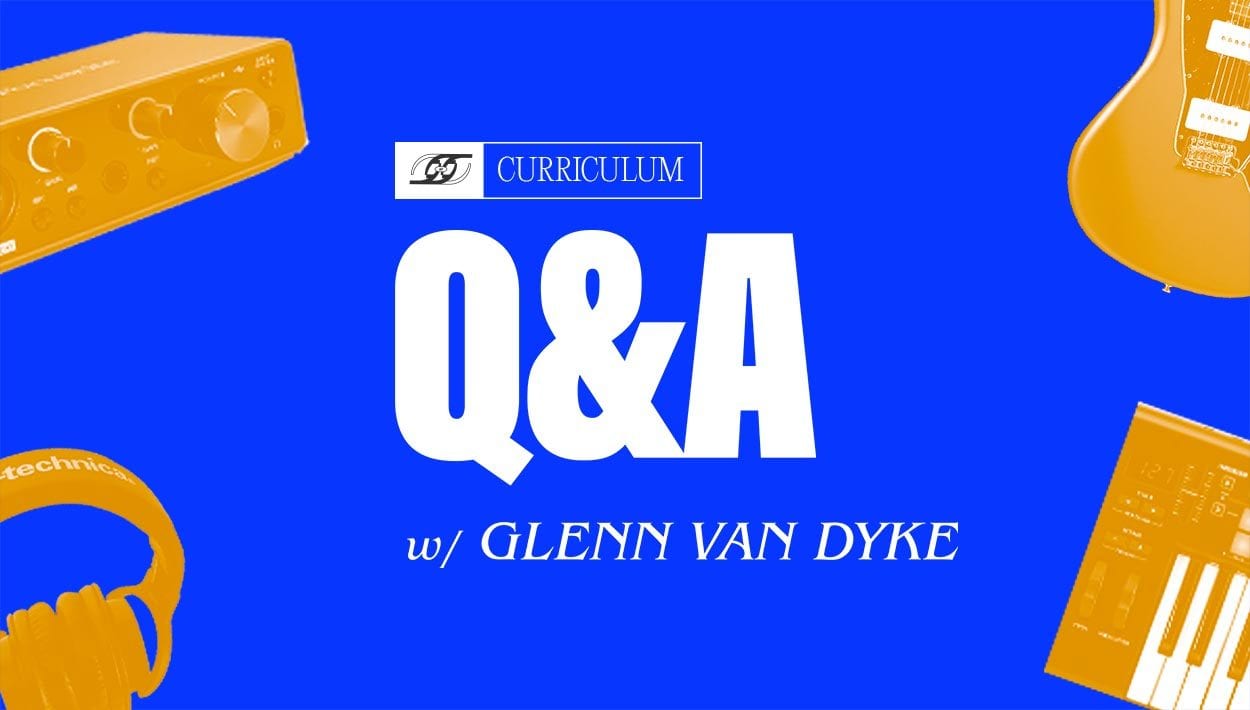
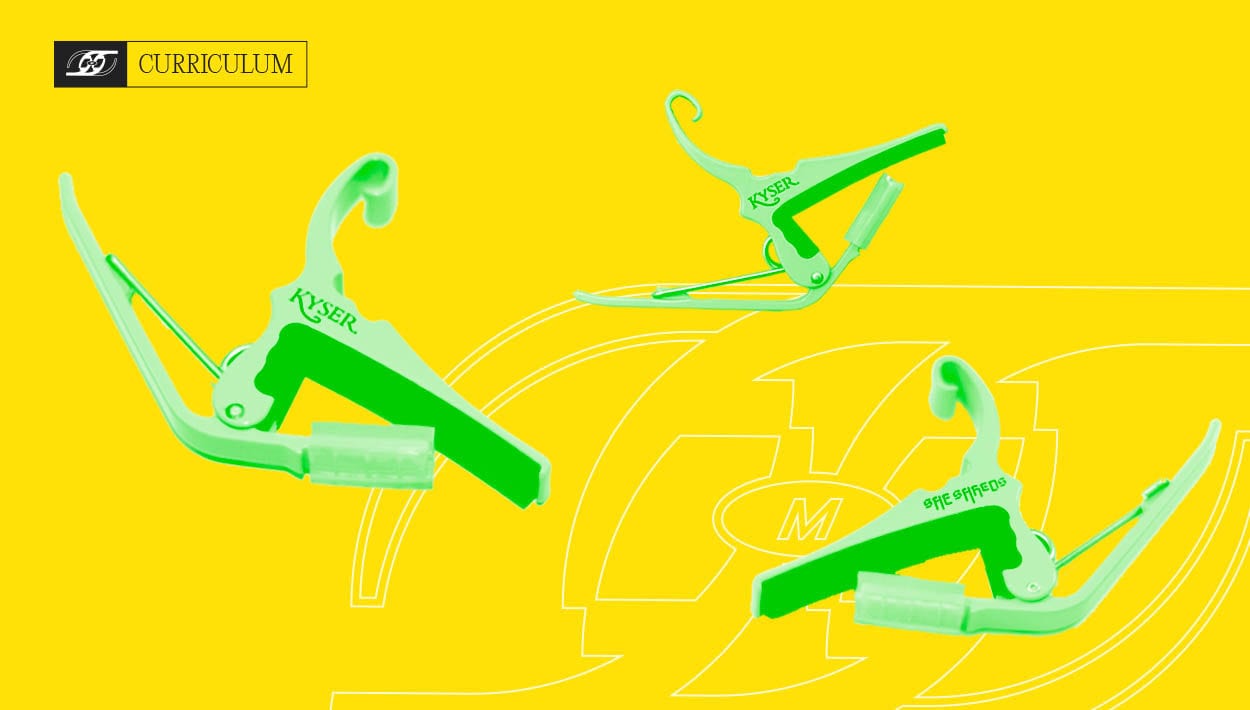
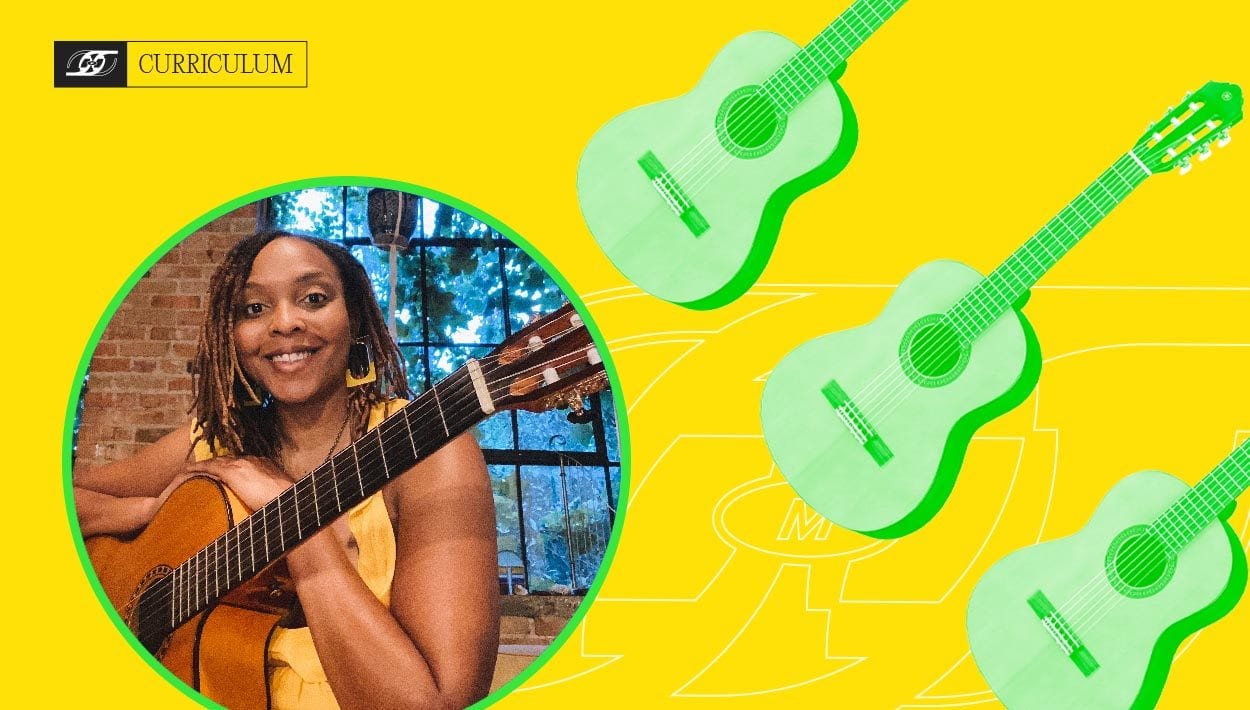
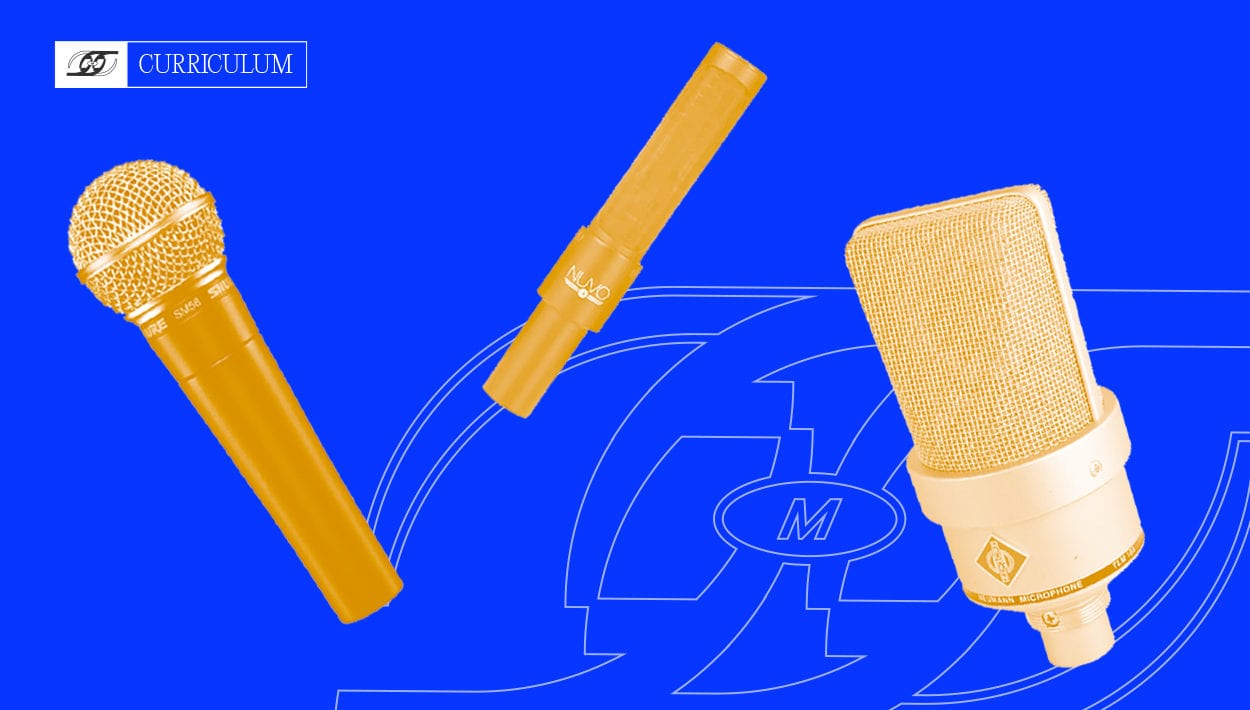


Comments
Beautiful instruments built by a beautiful soul. Inspirational
Comment by Nelson on February 17, 2021 at 2:16 pm[…] Luthiery and Reinvention: The Interdependence of TunaTone Instruments By: Leila Sidi […]
Pingback by She Shreds Media on February 22, 2021 at 12:13 pmSo much gold in this 😉 The world needs more people like you, Leila!
Comment by Maria on April 22, 2021 at 7:52 pmWhen written well, articles and books may affect the lives of many for the better. Your contribution has been quite helpful; I hope you’ll continue to keep us all updated.
Comment by geometry dash subzero on February 14, 2023 at 5:24 pmAn interesting thought, Beautiful instruments are made by a beautiful soul. Your story has inspired many readers.
Comment by Happy Wheels on June 22, 2023 at 2:26 am